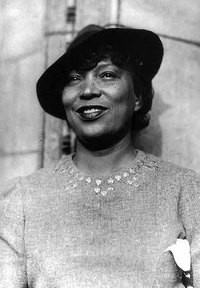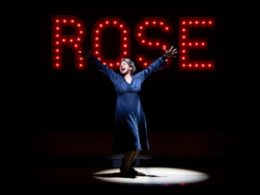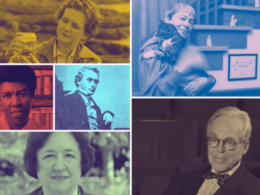
Earlier this week, Glenda R. Carpio and Werner Sollors published an essay in The Chronicle of Higher Education on their experiences team-teaching a course on Zora Neale Hurston (who was born 120 years ago today) and Richard Wright. They used the two Library of America editions of Hurston’s writings as their primary texts, but encouraged students to do original research using less-accessible texts and resources.
Poking around on their own, Carpio and Sollors unexpectedly rediscovered three forgotten stories by Hurston:
And then one afternoon we were burrowing through what felt like the umpteenth reel of microfilm from the 1920s and early 1930s, a time when Hurston had already published stories but before her first novel came out. Anyone who has used microfilm of newspapers knows how tedious scanning its often blurry print can be. Then Werner stopped. He had come upon a short story by Hurston that neither of us knew about. We kept looking. The next day, we found two more, all from 1927. As we looked into them, we discovered that not one was listed in the bibliography in Robert Hemenway’s biography of Hurston, or included in any collections of her stories that we knew of. Even more surprising, the stories were set in the New York City of the Harlem Renaissance; they reminded us less of the canonical Hurston than of authors like Rudolph Fisher and Nella Larsen, who are more closely associated with stories of migration from the country to the city and with sophisticated novels of manners in urban settings.
The two scholars note that the existence of these three stories—and there may well be others—shows that it’s not entirely correct to view Hurston through the prism of her later focus on rural black life. “They show us that Harlem was of more than just passing interest to the author . . . Hurston’s urban period reminds us that she was a central player in the Harlem Renaissance—but also one of its fiercest critics.”
You can also view recently discovered documentary film footage shot by Zora Neale Hurston during one of her research trips to Florida in 1928. Read more about the footage here.



